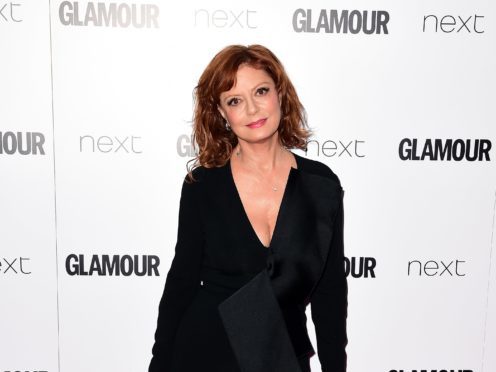Susan Sarandon has said she was told early on in her acting career that she would not work beyond 40.
The 71-year-old said there are so many women in her age group who are now working because female film-makers are pushing to make money by telling the stories of older women on screen.
She said she identified with the inherent sexism experienced by 1940s film star and inventor Hedy Lamarr, whose story is told in new documentary Bombshell: The Hedy Lamarr Story, which has been executive produced by Sarandon.
Of starting her career in the early 1970s, Sarandon told the i newspaper: “I was told you were done by the time you’re 40 and you definitely shouldn’t talk about having children, because that made you less sexy.”
She added: “I’m still working, and there are tonnes of other women working around my age, and the main reason for that is female producers and female writers and directors and people who are willing to try and get money for a female-driven story where all the characters are not 22.
“Otherwise, there just aren’t that many stories of older men and women. I mean there are stories of older men but they always have 30-year-old girlfriends.”
Sarandon said there is a real importance to telling women’s stories and “showing women that are the protagonists in their own lives”.
The actress, who has starred in films including Thelma And Louise, The Rocky Horror Picture Show, Atlantic City and Dead Man Walking, added: “It’s not doing anybody a favour.
“It’s really just reflecting this amazing world we live in and the stories and heroes that exist.
“And making it more reflective of what’s out there.”
The Oscar-winning actress and activist said that she believes the current Time’s Up campaign is more than just being against sexual harassment.
So honored and humbled to have the chance to spread the word about #TimesUp with these incredible, unstoppable women tonight. Learn more and donate at https://t.co/DkAbuhCOF1. #GoldenGlobes
📸: Art Streiber pic.twitter.com/PeR5r6k2Qq
— Susan Sarandon (@SusanSarandon) January 8, 2018
“Time’s Up is not only about violence against women,” she said.
“It’s also about being seen and listening to all women in all kinds of jobs: our sisters that are waitresses and cleaning apartments and taking care of our children and all of these areas where the imbalance of power has led to vulnerability, where women are physically threatened.
“And in listening to everyone, the world will be a healthier place.”
The full interview is available to read in the i newspaper, out now.
